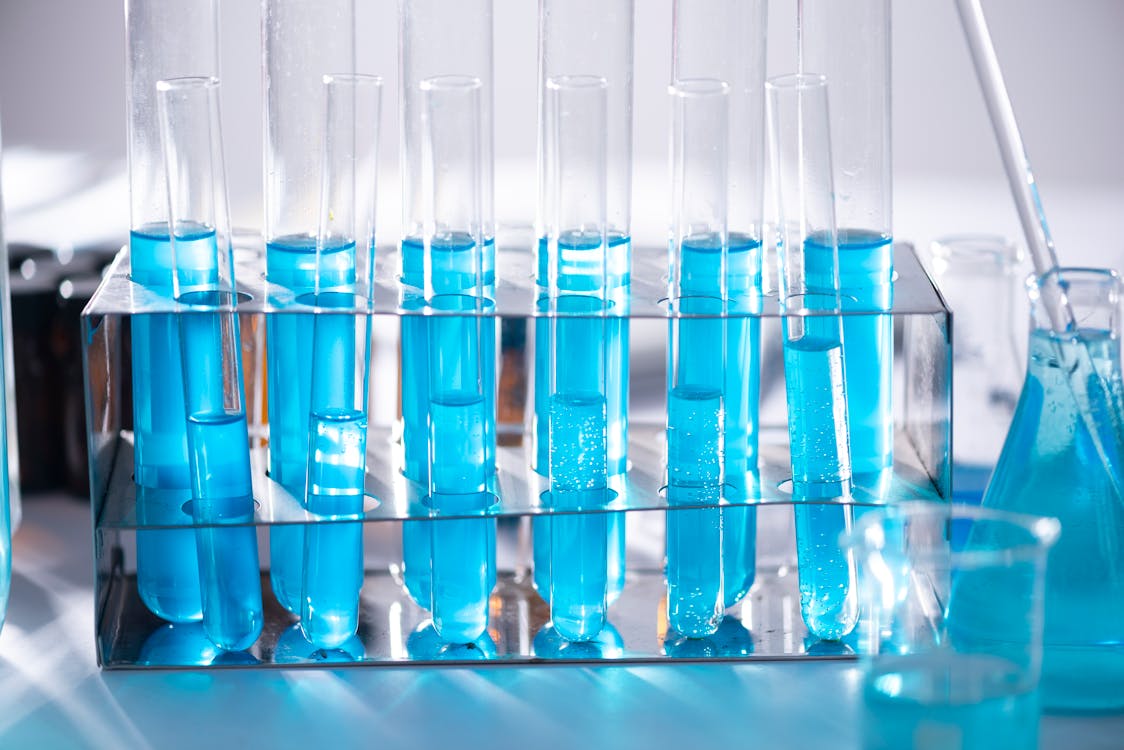Week In Review: Wuhan Binhui Raises $47 Million For Oncolytic Virus Products

Image Source: Unsplash
Deals and Financings
Wuhan Binhui Biotech closed a $47 million Series B financing to support its R&D of oncolytic virus products (see story). The company’s oncolytic herpes simplex virus (oHSV2) technology platform has produced its first product, BS001 (OH2) injection, which has been approved in China for single and combination drug trials.
In August 2021, BS001 was approved to start US trials in various solid tumors. The company also develops viral vector vaccines, recombinant protein drugs and nucleic acid drugs. The B+ round was led by Yangtze River Pharmaceutical Group.
Trevena (TRVN), a Philadelphia-area CNS biopharma, closed a $40 million revenue-based financing from an affiliate of R-Bridge Healthcare Fund, which is allied with CBC (see story). The funding is tied to future China milestones of Trevena’s Olyinvyk®, a novel injected Schedule II opioid.
In 2018, Trevena out-licensed China rights for Olyinvyk to Jiangsu Nhwa Pharma. Trevena will receive $15 million upfront, another $15 million after the first China sale of Olyinvyk®, and $10 million after a financing or commercial milestone. The R-Bridge entity will be repaid by receiving all of Trevena’s China revenues from Nhwa, plus a percentage of Trevena’s US Olyinvyk revenues.
According to a Bloomberg article, Shanghai’s I-Mab (IMAB) is talking with other global drugmakers about some sort of deal that could be a sale of the whole company or a deal for one of its oncological assets (see story). Bloomberg noted that I-Mab has lost three-fourths of its market value since the prices for pharmaceutical companies peaked in June 2021.
When it announced 2021 year-end results, I-Mab reported $671 million in cash. Combined with expected milestone payments, I-Mab said it has enough capital to fund operations through 2025.
GeneQuantum Healthcare of Suzhou will co-develop a first-in-class therapeutic antibody drug conjugate (ADC) with Aimed Bio, a spin-off from Korea’s Samsung Medical Center (see story). Aimed Bio develops innovative antibody-centric drugs for brain diseases that have few treatment options.
GeneQuantum will apply its Ligase Dependent Conjugation (LDC) technology platform to the Aimed antibody, facilitating a site-specific conjugation of cytotoxins or other payload type. The company says its technology improves key therapeutic characteristics of existing molecules and creates new classes of molecules, expanding treatment options for patients.
Amoy Diagnostics (300685.SZ), a Shanghai novel molecular diagnostics company, signed a collaboration agreement to develop companion diagnostics for AstraZeneca (AZN) drugs (see story). The agreement covers development and commercialization. Initially, Amoy will focus on CDx products for genetic variations in patients with prostate or breast cancer.
Earlier this month, Amoy announced a similar agreement with HutchMed (HCM) for a NSCLC diagnostic. Founded in 2008, Amoy claims to be the largest provider of molecular diagnostics products for personalized healthcare in China, as well as a service center for oncology biomarker analysis.
Industry News
The Shanghai STAR Market Biology and Medicine Index, a weighted average of the 50 largest life science companies listed on Shanghai’s STAR Market, will begin operations on May 9 (see story). The index is run jointly by the Shanghai Stock Exchange and the China Securities Index Co. Members of the index will include biopharmaceutical, biomedical engineering, biotech agriculture, biomass energy, and other companies.
To form the initial list, candidates were ranked by the average daily capitalization over the past year in descending order. Established in 2019, the STAR Market provide a China home for tech companies to IPO and to offer competition to Hong Kong’s pre-revenue rules for biopharma IPOs.
Trials and Approvals
Lynk Pharma, a Hangzhou small molecule company, was approved to start China Phase I trials of a novel kinase inhibitor to treat psoriasis (see story). Lynk said LNK01004 inhibits multiple inflammatory cytokines and blocks multiple signaling pathways that are related to psoriasis, with the goal of providing maximal efficacy.
In preclinical studies, the candidate was spread on the skin and caused very low systemic exposure, thus avoiding general immune suppression. Lynk develops first-in-class/best-in-class products for autoimmune diseases, inflammation, and cancer.
Shenzhen ImmVira plans to establish a partnership with Roche to conduct US clinical trials that combine ImmVira's 3-in-1 herpes simplex virus product with Roche's MEK inhibitor, cobimetinib (see story).
ImmVira’s MVR-T3011 is delivered by an oncolytic herpes simplex virus (oHSV) that is a genetically engineered oHSV with replication potency in tumor cells. It incorporates two exogenous genes, a PD-1 antibody and IL-12, to enhance immune responses in the tumor microenvironment. ImmVira believes MEK inhibitors augment oHSV oncolytic activity in BRAF V600E mutated cells and offer synergistic advantages.
JW Therapeutics (2126.HK), a Shanghai CAR-T company, will start China trials of Carteyva®, its anti-CD19 CAR-T therapy, in pediatric and young adult patients (see story). In September 2021, the CAR-T was approved in China as a third-line therapy for adult patients with B-cell lymphoma.
The new trial will enroll young patients with relapsed or refractory lymphoblastic leukemia. JW was formed in 2018 as a JV between Juno Therapeutics of Seattle and WuXi AppTec. It now calls itself an independent company.
Hangzhou Ascletis Pharma (1672.HK) reported that its oral small molecule 3CLpro inhibitor was a more effective treatment for COVID-19 in preclinical tests than rival candidates (see story).
ASC11 is a company-developed 3-chymotrypsin like protease (3CLpro) inhibitor, which Ascletis believes has the potential to be a best-in-class antiviral treatment for COVID-19. The company expects to file an IND in China for the therapy in the second half of 2022 and to complete a Phase I trial in healthy adults by the end of 2022.
Disclosure: None



